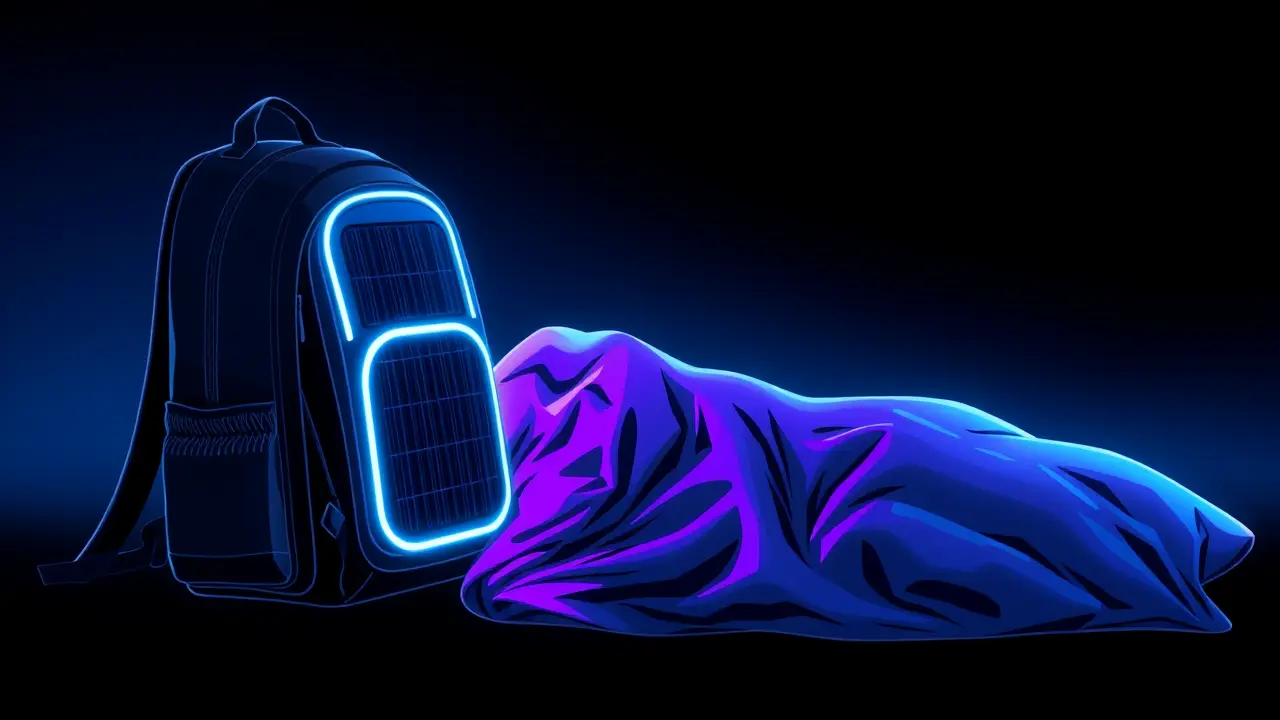
Otherreal estateHousing Market Trends
Solar-powered backpack provides shelter for the homeless.
RA
1 month ago7 min read2 comments
In a world increasingly defined by the dual crises of climate change and social inequality, the HomeMore Project has engineered a poignant intersection of both with its solar-powered backpack, an accessory designed not for the tech-obsessed commuter but for the individual navigating the profound uncertainty of homelessness. This isn't merely a product; it's a portable, dignified shelter system, integrating a sleeping bag and pillow, that uses the sun's boundless energy to power essential devices, offering a sliver of stability and safety to those living on the streets.The initiative speaks to a deeper, more systemic failure—the global housing crisis that has left millions in cities from Los Angeles to London exposed to the elements—while proposing a solution grounded in sustainable principles. By enabling users to charge a phone, the backpack becomes a critical lifeline, a tool for seeking employment, contacting support services, or maintaining a connection to a world that often renders the homeless invisible.The design philosophy echoes the urgent lessons from ecological science: true resilience is found not in fighting nature, but in harnessing its rhythms for human dignity. One can draw a parallel to the adaptive strategies of species in a changing ecosystem; this backpack is a human adaptation, a tool for survival in an urban environment that has become increasingly hostile.While critics might argue that such innovations risk normalizing homelessness rather than addressing its root causes—inadequate affordable housing, mental health support, and economic disparity—proponents see it as a necessary form of immediate, tangible harm reduction. It provides a layer of protection against hypothermia, a means to call for help, and a small but significant repository for personal belongings, all while leaving no carbon footprint.The data on homelessness is stark and emotionally draining, with numbers soaring post-pandemic and during economic downturns, yet the HomeMore Project offers a narrative not of despair, but of pragmatic, compassionate intervention. It’s a piece of mobile infrastructure that acknowledges the reality of its users' lives, treating them not as problems to be solved but as people with immediate, physical needs for security and power. The project forces us to confront uncomfortable questions about our societal priorities: why is cutting-edge technology so often reserved for luxury, and how can we redirect our innovative capacities toward genuine human need? As Rachel Carson once illuminated the interconnectedness of our environment and well-being, this backpack symbolizes a similar, modern truth—that the fight for a habitable planet is inextricably linked to the fight for a just society where everyone has a place to call home.
#homelessness
#innovation
#solar power
#sustainable design
#portable shelter
#lead focus news
Stay Informed. Act Smarter.
Get weekly highlights, major headlines, and expert insights — then put your knowledge to work in our live prediction markets.
Related News
Comments
Loading comments...
© 2025 Outpoll Service LTD. All rights reserved.